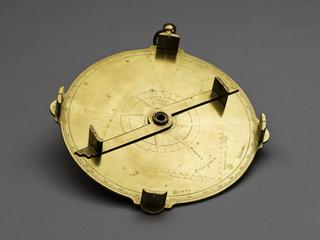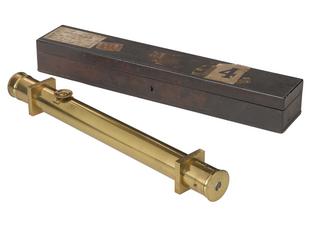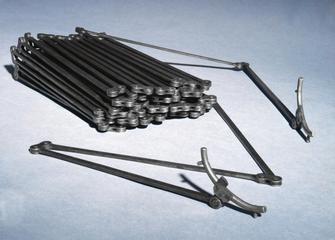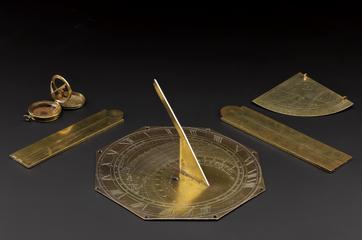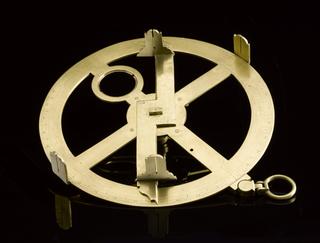
Theodolite used for the Principal Triangulation of Great Britain
- Made:
- 1791 in Piccadilly
- maker:
- Jesse Ramsden


























Main part of three-foot geodetic theodolite, sometimes called the ‘great Theodolite’, used for the Principal Triangulation of Great Britain. Made by Jesse Ramsden, Piccadilly, London, 1791.
This large geodetic theodolite was originally ordered from leading craftsman Jesse Ramsden by the East India Company, who intended to use it for imperial surveying work. However, when Ramsden presented his customer with the bill, in which he had reflected the time and effort spent in improving and perfecting the instrument, they refused to pay the high price he demanded.
Instead, it was purchased by the Board of Ordnance, who used it for the Principal Triangulation of Great Britain. This was an ambitious land surveying project which aimed to produce an accurate map of the nation, and later would go by the name of the Ordnance Survey.
The project began in the summer of 1791. After an accurate baseline had been measured on Hounslow Heath, west of London, the theodolite was used to measure angles between distant landmarks. As a network of triangles began to stretch across the country, accurate distances could be calculated mathematically from the known baseline using trigonometry. Precision measurement was key as surveyors had to take the curvature of the earth into account in their calculations.
Operating the theodolite was hard work – it weighed 200 lb (around 90 kg), and had to be winched to the top of church steeples, hilltops or its own scaffolding tower for observations to be made. It was transported across the country making observations for Ordnance Survey work until the 1850s.
Details
- Category:
- Surveying
- Object Number:
- 1876-1203 Pt1
- Materials:
- wood (unidentified) and metal (unknown)
- Measurements:
-
overall: 1230 mm x 1200 mm x 1100 mm, 1070 mm,
- type:
- geodetic theodolite
- credit:
- Ordnance Survey
